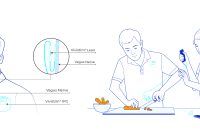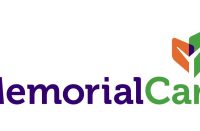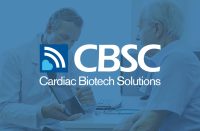PRESS RELEASE
REGULATED INFORMATION – INSIDE INFORMATION
15 November 2022, 07:00 am CET
- Data from SAHARA with first-generation DSR product (DSR 1.0) confirm:
- Safe, effective and rapid elimination of persistent congestion following intensive DSR therapy
- Considerable benefit in cardio-renal status maintained till end of study (16 weeks post-intensive DSR therapy)
- Dramatic and sustained improvement in diuretic response up to 15 months post intensive DSR therapy
- No congestion-related heart failure re-hospitalizations during entire study
- One class improvement of NYHA status and 75% reduction in predicted one-year mortality based on Seattle Heart Failure model
- First patient dosed successfully in YUKON, Ph. 1 study of second-generation DSR product (DSR 2.0)
- MOJAVE, US Ph. 1/2a randomized controlled multi-center study of DSR 2.0, on track to start in H1 2023
- Company presentation with webcast at Jefferies Healthcare Conference on 17 November 2022
Ghent, Belgium – 15 November 2022 – Sequana Medical NV (Euronext Brussels: SEQUA) (the “Company” or “Sequana Medical“), a pioneer in the treatment of drug-resistant fluid overload in liver disease, heart failure and cancer, today announces positive top-line results from SAHARA, the Phase 2a study using its first-generation DSR (Direct Sodium Removal) product (DSR 1.0). Data from teni evaluable diuretic-resistant heart failure patients with persistent congestion who have completed the 16-week follow-up period after intensive DSR therapy confirm the previously reported strong interim dataii showing important and long-lasting clinical benefits.
To evaluate the safety, tolerability and efficacy of the Company’s second-generation DSR product (DSR 2.0), a single-arm, open-label, Phase 1 study has been initiated in Canada (YUKON) with up to 10 patients on peritoneal dialysis receiving a single treatment of DSR 2.0. The first patient has been dosed successfully and the results of this study will be used to determine dosing of DSR 2.0 in MOJAVE. Data from YUKON, together with CHIHUAHUA, a further Phase 1 study in Mexico intended to support the US INDiii filing of DSR 2.0, planned for Q1 2023. These replace the previously planned SAHARA extension study with DSR 2.0. Approval of the US IND will enable the Company to start MOJAVE, its randomized controlled multi-center Phase 1/2a US study of DSR 2.0, planned for H1 2023.
Dr. Jeffrey Testani, Associate Professor at Yale University and Heart Failure Scientific Advisor to Sequana Medical, commented: “Congestion is a key driver of heart failure and remains the leading cause of morbidity and hospitalization in this large and growing patient population. Diuretic-resistance is widespread and the usual therapeutic approach is just adding more diuretics, further worsening the underlying issues. There are no therapies that seek to correct the cardio-renal pathophysiology causing the diuretic-resistance. The SAHARA results are highly encouraging and indicate the potential for DSR therapy to deliver clinically meaningful decongestion and durable improvements in cardio–renal function and thus diuretic response.”
Dr. Oliver Gödje, Chief Medical Officer of Sequana Medical, added: “These results are very positive and reinforce our view that DSR is a potential disease-modifying heart failure therapy. We are excited to have the first patient dosed with DSR 2.0 and we are confident that this second–generation product will deliver important therapeutic and safety benefits. I would like to thank the investigators, patients and care personnel involved in both SAHARA and YUKON, and we look forward to commencing MOJAVE, the first randomized controlled multi-center study in the US using DSR 2.0.”
SAHARA top-line results
At baseline, all teni evaluable patients with persistent congestion due to heart failure were on high dose loop diuretics (mean furosemide equivalent dose of 360 mg/day) and had an overall high disease severity, including a mean left ventricular ejection fraction of 23% and mean NT-proBNP of 6,628 pg/mL. At the start of the study treatment period, loop diuretics were withheld, and patients underwent intensive DSR therapy with DSR 1.0 for two weeks (phase 1) which was repeated up to two times depending on patients’ euvolemic state (i.e., normal amount of body fluids), diuretic response and stable DSR dosing at the end of phase 1. Patients who achieved euvolemia and had adequate diuretic response entered the maintenance DSR treatment phase with monthly DSR dosing for 16 weeks (phase 2).
All ten evaluable patients safely, effectively and rapidly eliminated the persistent congestion and achieved euvolemia within one week of commencing intensive DSR therapy, resulting in a mean weight loss of 7kg at the end of phase 1. During the intensive DSR period (phase 1), the diuretic response of the kidney was near-normalised, with mean six-hour excretion of sodium increasing more than 160% vs. baseline, as well as a considerable improvement in cardio-renal health, with a mean reduction in NT-proBNPiv of 38% vs. baseline and a mean improvement in eGFRv of 7% vs. baseline despite the dramatic fluid loss.
The improvement in cardio-renal health was broadly maintained at the end of phase 2 (16 weeks post intensive DSR period) demonstrated by a mean 33% reduction in NT-proBNP and a stable eGFR.
The need for loop diuretics was dramatically reduced for many months following completion of the intensive DSR therapy (see table below), which the Company believes is a demonstration of the durable improvement in cardio-renal health.
| Evaluable patient | No. of months post intensive DSR period | Reduction in diuretic dose vs. baseline |
| 01-01 | 15 | 90% |
| 01-03 | 13 | 100% |
| 01-04 | 12 | 90% |
| 01-05 | 12 | 100% |
| 01-06 | 10 | 100% |
| 01-08 | 10 | 90% |
| 01-09 | 9 | 67% |
| 01-10 | 9 | 95% |
| 01-11 | 6 | 93% |
| 01-12 | 6 | 100% |
No clinically relevant changes in serum sodium levels or progressive hyponatremia were observed in any of the evaluable patients. There were three serious adverse events in three of the evaluable patients, including two having a blocked peritoneal catheter (both during phase 2) and one with stable angina (started post phase 2, ongoing). The Data Monitoring Committee assessed both peritoneal catheter blockages as definitely related to the study device but unrelated to the implant procedure or study treatment, and the stable agina as unrelated to the study device, implant procedure, or treatment.
All evaluable patients treated with DSR therapy in the RED DESERT and SAHARA clinical studies experienced no congestion-related heart failure hospital re-admissions during the entire study period and all patients improved their NYHAvi status by at least one class. The clinical benefits observed in RED DESERT and SAHARA resulted in a 75% reduction in predicted one-year mortality of patients pre- vs. post-intensive DSR therapy based on the Seattle Heart Failure Modelvii.
On track to start MOJAVE with DSR 2.0 in H1 2023
The Company is progressing development of its proprietary DSR 2.0 product, a sodium-free dextrose / icodextrin solution expected to have an improved therapeutic and favourable safety profile and with a robust intellectual property protection. Data from two interventional, single-centre, single-arm studies, one in Canada (YUKON) and one in Mexico (CHIHUAHUA) will evaluate the safety, tolerability and efficacy of DSR 2.0. Both studies will enroll up to ten stable peritoneal dialysis patients who will receive a single treatment of DSR 2.0, administered through their peritoneal dialysis catheter. The first patient has been treated successfully in YUKON and data from both studies intended to support the filing of the US IND, planned for Q1 2023. The choice of peritoneal dialysis patients is driven by their pre-existing peritoneal dialysis catheter.
Following initial discussions with the FDA, MOJAVE, a randomized controlled Phase 1/2a US study of DSR 2.0, is on track to start in H1 2023 assuming FDA approval of the US IND. The intention is to enrol 30 diuretic-resistant chronic heart failure patients with persistent congestion, with 20 patients randomised to DSR 2.0 administered via a peritoneal catheter on top of usual care for congestive heart failure (CHF) for up to four weeks and ten patients randomised to usual care for CHF alone. Following four weeks of DSR therapy there will be a three-month safety follow-up period. Prior to enrolment of these 30 patients, three additional patients will be enrolled in a non-randomized safety cohort and will receive DSR 2.0 administered via a peritoneal catheter on top of usual care for CHF for up to four weeks. Progression to the enrolment of the 30 randomized patients will be dependent upon DSMBviii approval following their review of the initial three patients. More details on the final study design will be announced following FDA approval of the US IND. Interim data of MOJAVE are planned for H2 2023 and top-line results are expected in mid 2024.
For more information, please contact:
Sequana Medical
Lies Vanneste
Director Investor Relations
E: IR@sequanamedical.com
T: +32 (0)498 053579
Optimum Strategic Communications
Mary Clark, Nick Bastin, Vici Rabbetts
E: Sequana@optimumcomms.com
T: +44 (0)7931 500 066
About fluid overload in heart failure (AKA congestion)
Heart failure is the leading cause of US hospitalizations in patients over 65 years old and 90% of these admissions are due to fluid overload, which is recognized as the primary driver of morbidity and hospitalization. Standard of care includes treatment with diuretic drugs, but these have well recognized toxicity and resistance issues. Half of the heart failure patients admitted for fluid overload are discharged with no clinically relevant loss of fluid and one in four is re-admitted to the hospital within 30 days of discharge. It is estimated that 200,000 US heart failure patients have drug-resistant congestion requiring repeated hospitalization, severely impacting their survival and quality of life and creating a heavy financial burden.
About DSR® (Direct Sodium Removal) in heart failure
Sequana Medical considers its proprietary DSR to be a disease modifying therapy for heart failure. Fluid accumulation in heart failure patients is caused by the retention of too much sodium. The DSR drug-based approach directly tackles this key clinical problem of sodium overload, and works in partnership with the kidneys to safely and rapidly eliminate the excess fluid. Complementary to existing heart failure therapies, clinical proof-of-concept studies using the Company’s first-generation DSR product (DSR 1.0) have shown that DSR can i) safely, effectively and rapidly eliminate fluid overload in heart failure patients, ii) improve the health of the heart and preserve renal function, and iii) restore the ability of the kidney to manage the fluid and sodium naturally, resulting in a large and long-lasting reduction in the need for diuretic drugs. In DSR treated patients, there have been no congestion-related re-hospitalizations during the study follow-up period, all patients improved their NYHA status by at least one class and the clinical benefits observed in the clinical studies resulted in a 75% reduction in predicted one-year mortality of patients pre- vs. post-intensive DSR therapy based on the Seattle Heart Failure Model. The Company is currently preparing an IND application for its second-generation DSR product (DSR 2.0) in the US and plans to begin a US randomized controlled Phase 1/2a clinical trial in H1 2023. Composition of matter and method patents have been granted for DSR therapy in the US and Europe.
About Sequana Medical
Sequana Medical NV is a pioneer in treating drug-resistant fluid overload, a serious and frequent clinical complication in patients with liver disease, heart failure and cancer. Fluid overload is a well-recognized problem in these growing diseases, causing severe problems for the large number of patients for whom current medicines are no longer effective. These patients can have up to 15 liters of extra fluid in their bodies, causing major medical issues including increased mortality, repeated hospitalizations, severe pain, difficult breathing and restricted mobility that severely impacts daily life.
alfapump® and DSR® are Sequana Medical’s proprietary platforms that work with the body to remove this excess fluid, delivering major clinical and quality of life benefits for patients and reducing costs for healthcare systems. The Company has reported positive primary endpoint data from the North American pivotal POSEIDON study of the alfapump in recurrent or refractory ascites due to liver cirrhosis, enabling the filing of a Pre-Market Approval (PMA) application with the FDA, planned for H2 2023. Having delivered clinical proof-of-concept for DSR as a disease-modifying drug program for the treatment of heart failure, the Company is planning to commence MOJAVE, a US multi-centered randomized controlled Phase 1/2a clinical study of DSR 2.0, in H1 2023.
Sequana Medical is listed on Euronext Brussels (Ticker: SEQUA.BR) and headquartered in Ghent, Belgium. For further information, please visit www.sequanamedical.com.
Important Regulatory Disclaimers
The alfapump® system is currently not approved in the United States or Canada. In the United States and Canada, the alfapump system is currently under clinical investigation (POSEIDON Study) and is being studied in adult patients with refractory or recurrent ascites due to cirrhosis. For more information regarding the POSEIDON clinical study see www.poseidonstudy.com. DSR® therapy is still in development and it should be noted that any statements regarding safety and efficacy arise from ongoing pre-clinical and clinical investigations which have yet to be completed. DSR therapy is currently not approved for clinical research in the United States or Canada. There is no link between DSR therapy and ongoing investigations with the alfapump system in Europe, the United States or Canada.
Note: alfapump® is a registered trademark. DSR® is a registered trademark in the Benelux, China, the EU, United Kingdom, and Hong Kong.
Forward-looking statements
This press release may contain predictions, estimates or other information that might be considered forward-looking statements. Such forward-looking statements are not guarantees of future performance. These forward-looking statements represent the current judgment of Sequana Medical on what the future holds, and are subject to risks and uncertainties that could cause actual results to differ materially. Sequana Medical expressly disclaims any obligation or undertaking to release any updates or revisions to any forward-looking statements in this press release, except if specifically required to do so by law or regulation. You should not place undue reliance on forward-looking statements, which reflect the opinions of Sequana Medical only as of the date of this press release.
i In total, 12 patients were dosed in SAHARA but one patient died due to a cardiac arrest three days after study initiation and for one patient the study protocol was not correctly applied.
ii Interim data reported in Press release of 19 July 2022
iii IND: Investigational New Drug
iv NT-proBNP: N-terminal pro B-type natriuretic peptide, a key cardiac function parameter
v eGFR: estimated Glomerular Filtration Rate, a measure of kidney function
vi NYHA: New York Heart Association classification, data collected outside study protocols of RED DESERT and SAHARA
vii Predicted one-year survival analysis using Seattle Heart Failure Model of seven patients from RED DESERT and ten patients from SAHARA pre- and post-intensive DSR therapy. Analysis includes physician-assessed data collected post hoc.
viii DSMB: Data and Safety Monitoring Board






